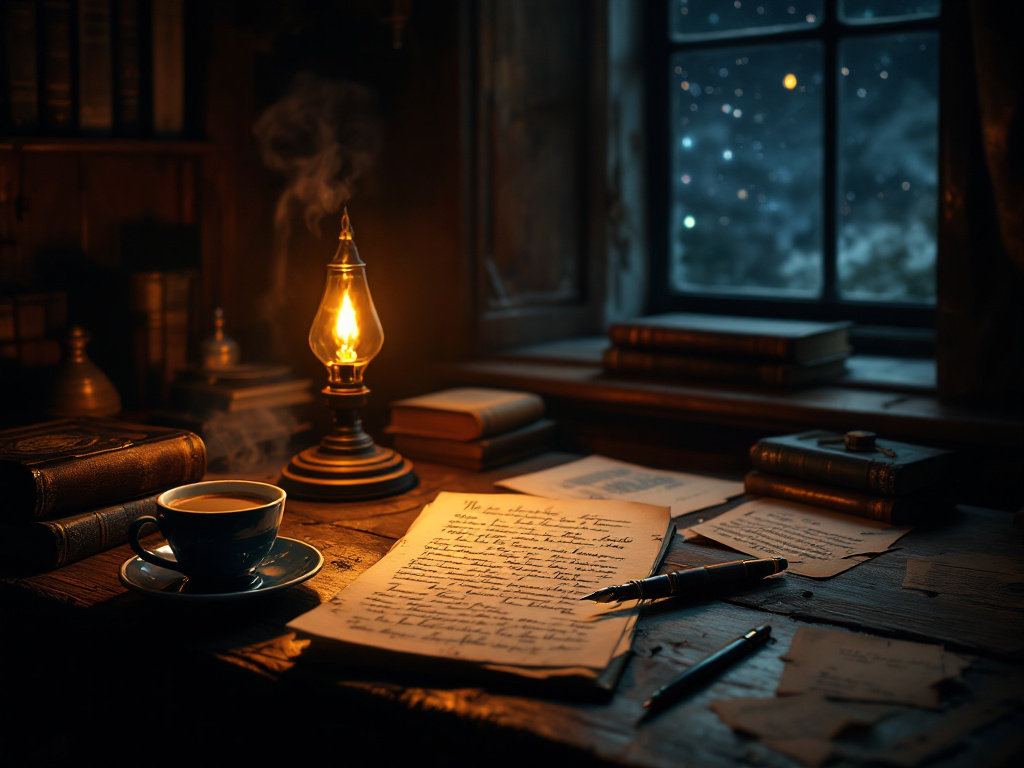
-
Understanding Vaping: Health Impacts And Effective Prevention Approaches
 Vaping has surged in popularity, especially among young people, but its health consequences often remain shrouded in mystery. Knowing the dangers linked to vaping is important, as they go beyond just addiction. This article looks at the health effects in both the short and long term, compares vaping with traditional smoking, and examines the rules governing its use. We will talk about ways to prevent problems and protect the next generations. Learn the facts about vaping and its effects on health.
Vaping has surged in popularity, especially among young people, but its health consequences often remain shrouded in mystery. Knowing the dangers linked to vaping is important, as they go beyond just addiction. This article looks at the health effects in both the short and long term, compares vaping with traditional smoking, and examines the rules governing its use. We will talk about ways to prevent problems and protect the next generations. Learn the facts about vaping and its effects on health.
Definition and History
Vaping involves breathing in a mist created by warming up a liquid, which usually has nicotine, flavors, and other substances. The first e-cigarettes were launched in 2003. Since the introduction of e-cigarettes, the vaping industry has evolved significantly. Early devices, like the Joye 510, offered a basic experience, but advancements led to more sophisticated models such as sub-ohm tanks and temperature control mods. The 2014 introduction of the vaping trend called `cloud chasing’ encouraged new ideas and developments. Key milestones include the rise of pod systems like Juul, which simplified usage and appealed to a younger demographic. Today, the market features diverse products, catering to various preferences while raising concerns about regulation and health implications.Popularity Among Different Demographics
Recent surveys indicate that approximately 30% of high school students in the U.S. have reported using e-cigarettes, highlighting its prevalence among youth demographics. The increase in vaping is due to a number of reasons. The appeal of flavored e-liquids, which come in a variety of tastes like mint, fruit, and candy, attracts younger users. The portability and discreet design of devices further increase their popularity. Social media platforms often glamorize vaping culture, influencing adolescents’ perceptions. According to the National Youth Tobacco Survey, nearly 60% of teens reported using flavors as their primary reason for vaping. Awareness campaigns targeted at educating youth about the risks associated with vaping are essential to counter these trends.Health Impacts of Vaping
Learning about how vaping affects health is important because it can cause both short-term and long-term issues for different parts of the body.
Short-term Effects
Some immediate effects of vaping can include coughing, a sore throat, and a faster heartbeat. Research shows that 40% of users say they have breathing problems soon after using. Additional research has highlighted other significant symptoms, such as headaches, dizziness, and nausea, which may arise from nicotine or other chemical exposure associated with e-cigarettes. Research done in 2022 showed that more than 30% of young adults who use e-cigarettes experienced these problems after only a few tries. The implications for public health are considerable, as these immediate effects may deter continued use or, conversely, reinforce the normalcy of vaping among peers, potentially leading to long-term dependency and health complications.Long-term Health Risks
Using vapes for a long time can cause serious health problems, such as heart disease and lung damage. Studies show that individuals using e-cigarettes have a 30% higher chance of developing heart issues. Studies by recognized organizations like the American Heart Association indicate that frequent vaping can cause arteries to become stiffer and increase inflammation. Experts warn that exposure to harmful chemicals in e-cigarettes-like nicotine and formaldehyde-could exacerbate these risks over time. Ongoing research is important because results change over time. For example, a 2022 study found a possible connection between vaping and lung illnesses similar to those experienced by regular smokers. It’s important to be aware of these changes for health and prevention plans.Impact on Mental Health
Emerging studies show a concerning link between vaping and mental health issues, with data suggesting a 20% increase in anxiety and depression symptoms among regular users. Research indicates that nicotine can exacerbate anxiety and stress due to its impact on neurotransmitters. For instance, a study published in the Journal of Psychiatric Research found that teens who frequently vape are at a higher risk of developing depressive disorders. It’s essential for individuals to recognize these potential risks, especially if they already have a history of mental health issues. Reducing nicotine exposure through cessation programs or tools like nicotine patches can provide healthier coping mechanisms and support mental well-being.Comparative Analysis
A study shows major differences in health risks and how society views vaping compared to traditional smoking, highlighting the varied aspects of nicotine use.
Vaping vs. Traditional Smoking
While vaping is often marketed as a safer alternative to traditional smoking, studies show that both practices pose significant health risks, including lung damage and potential addiction. Health experts consistently warn about the dangers of both vaping and smoking. Traditional smoking is linked to a higher risk of cancer and cardiovascular diseases, while vaping has been associated with lung injuries, particularly from unregulated products. User demographics reveal that smoking is more prevalent among older adults, while vaping attracts a younger audience, often as an entry point to nicotine use. Societal attitudes are shifting, with many viewing vaping as less harmful, despite ongoing debates and emerging research highlighting its risks. More research is needed to clearly see the long-term effects of both methods.Vaping and Other Nicotine Products
Vaping shares similarities and differences with other nicotine products, such as snuff and traditional cigarettes, affecting user experience and health outcomes. Both vaping and traditional cigarettes deliver nicotine, leading to potential dependence, but their health impacts vary significantly. For example, while cigarettes release many harmful chemicals when burned, vaping usually produces fewer toxic substances. A study found that e-cigarette users have 95% lower exposure to harmful chemicals compared to smokers. Snuff, while smokeless, poses its own health risks, including gum disease and cancers. Knowing these differences is important for consumers who want to make informed choices about nicotine use.Regulatory Landscape
The rules about vaping are changing quickly due to worries about public health and the goal of keeping young people safe from getting addicted to nicotine.
Current Legislation
As of 2023, various states have imposed restrictions on vaping products, including flavor bans and age limits, to curb youth access and promote public health. For example, California has put a complete ban on flavored tobacco products, while New York requires people to be at least 21 years old to buy vaping products. In contrast, countries like Canada require vapers to adhere to strict advertising rules and nicotine concentration caps. These regulations reduce market availability and create barriers for newcomers, significantly impacting the vaping industry. Check local laws often and use resources like state health department websites to stay updated on any changes.Future Policy Directions
In the coming years, there may be plans to increase taxes on vaping products and put more restrictions on advertising to protect public health, particularly for young people. Groups that support causes and health organizations play a key role in influencing these policy changes. For instance, the Campaign for Tobacco-Free Kids actively lobbies for nationwide flavor bans and strict marketing regulations to deter youth from vaping. The American Lung Association highlights public health efforts to educate parents and teachers about the dangers of vaping. By collaborating with lawmakers, these organizations support policies based on the newest health research, ensuring that rules effectively cut down vaping among young people.Effective Prevention Approaches
It’s important to tackle the rising rates of youth vaping through successful prevention strategies. This needs cooperation from parents, teachers, and communities.
Education and Awareness Campaigns
Education and awareness campaigns have shown success, with efforts like the Truth Initiative reaching millions and cutting youth vaping rates by 20% in specific areas. One successful approach is the use of multimedia messaging combined with community engagement. For example, integrating social media platforms like Instagram and TikTok allows campaigns to connect with younger audiences through relatable content. The CDC’s “Tips from Former Smokers” campaign used real stories and focused advertising to create emotional reactions, leading to a large rise in efforts to stop smoking. Research shows that working together with local schools and health groups builds confidence and motivates people to join, resulting in a better-informed community and better health results. Also more and more schools are seeing great results from using a detector for aerosols.Community and Parental Involvement
Community and parental involvement can significantly impact youth vaping rates, with initiatives that engage families reducing usage by up to 25% in local studies. Programs like the `Family Engagement Project’ in Seattle have shown this impact by connecting parents with resources to discuss vaping openly. Workshops educate families on the risks and provide strategies for communication. One measurable outcome from the program indicated a 15% decrease in vaping among participating teens within a year. Similarly, schools offering `Parent Nights’ that cover vaping education display unity in messaging, reinforcing parental influence. Focusing on community participation, these programs create better surroundings and encourage helpful connections that discourage young people from starting to vape.Frequently Asked Questions
What is vaping and how does it work?
Vaping is the act of inhaling and exhaling vapor produced by an electronic cigarette or similar device. The device heats up a liquid, usually containing nicotine, and turns it into vapor that is then inhaled into the lungs.What are the potential health impacts of vaping?
Vaping can have both short-term and long-term health impacts. In the short-term, it can cause irritation to the lungs and throat, and can also lead to nicotine addiction. Eventually, it can lead to heart issues, trouble breathing, and reliance on other drugs.How can vaping be effectively prevented?
The most effective way to prevent vaping is through education and awareness. Schools, parents, and community organizations can provide information about the potential health impacts of vaping and promote healthier alternatives.Is vaping safer than smoking traditional cigarettes?
While vaping may be portrayed as a safer alternative to smoking traditional cigarettes, it still poses health risks. E-cigarettes contain harmful chemicals and can still lead to nicotine addiction.Can vaping help someone quit smoking?
There is no evidence to suggest that vaping is an effective method for quitting smoking. In fact, some studies have shown that it can actually make it harder to quit due to its addictive nature.What should I do if I suspect someone I know is vaping?
If you think someone you know is using e-cigarettes, talk to them calmly and share facts. Talk to them about the potential health impacts and offer support in finding healthier alternatives. -

The Midnight Oil Chronicles: How History’s Most Controversial Writers Found Their Voice
At 3 AM in a Paris apartment, Mary Shelley penned tales of monsters while her contemporaries wrote romance. In a Brooklyn brownstone, Walt Whitman scandalized society with his frank humanity. Some of literature’s most enduring voices were forged in those twilight hours when convention sleeps and raw truth emerges. What these writers share isn’t just talent—it’s the courage to write in the dark, both literally and metaphorically.
Mary Shelley: The Teenage Revolutionary
When Mary Shelley wrote “Frankenstein” at nineteen, she wasn’t just telling a ghost story—she was dismantling the entire literary establishment. While her male contemporaries waxed poetic about daffodils and nightingales, Shelley dared to ask what would happen if science overreached its bounds. She wrote about death, rebirth, and the dangers of unchecked ambition while living a life that scandalized society.
Shelley’s voice emerged from the perfect storm of rebellion. The daughter of feminist Mary Wollstonecraft, she eloped with Percy Shelley at sixteen, traveled Europe as an unmarried woman, and challenged every convention of her time. Her circumstances—often writing late at night after her children slept—forced her to develop a style that was both efficient and electric. The result? She didn’t just write a novel; she created science fiction as we know it.
Charles Bukowski: The Beautiful Brutalist
Bukowski spent decades sorting mail before he found his voice—or rather, before he stopped trying to sound like everyone else. At forty-nine, when most writers are winding down, he wrote “Post Office,” a novel that reads like a bar confession after last call. His genius lay in refusing to polish his rough edges.
What shaped Bukowski’s voice wasn’t creative writing workshops or literary theory. It was the grit of Los Angeles, the monotony of wage labor, and the clear-eyed honesty that comes from having nothing left to lose. He wrote at night, drunk on cheap wine and cheaper paper, creating a style that was defiantly anti-literary. His success proved that authenticity, however raw, finds its audience.
Virginia Woolf: Breaking the Narrative Chain
In an era when novels were expected to follow strict patterns, Woolf dared to write the way consciousness actually flows. Her stream-of-consciousness technique wasn’t just stylistic choice—it was revolution on paper. Writing from her experience with mental illness, she created narratives that reflected the fragmentary nature of human experience.
Woolf wrote in a “room of one’s own,” often during bouts of insomnia. Her unique perspective came from existing between worlds: between sanity and madness, between tradition and modernism, between societal expectations and artistic truth. She proved that your greatest challenges can become your greatest literary assets.
James Joyce: The Exiled Innovator
Joyce wrote about Dublin while living everywhere else. His self-imposed exile gave him the distance to see his homeland with brutal clarity. “Ulysses” broke every rule of writing—and some that hadn’t been invented yet. It was banned, burned, and ultimately celebrated as one of literature’s greatest achievements.
Working in various European cities, often writing in notebooks at cafe tables, Joyce developed a style that was simultaneously deeply personal and universally resonant. His failing eyesight forced him to write in large letters with red crayon on white paper—a reminder that limitations often breed innovation.
Lessons for Modern Writers
The pattern among these literary revolutionaries is clear: they wrote at odd hours, in exile (chosen or forced), and in defiance of convention. Their voices emerged not despite their challenges but because of them. Each turned their supposed weaknesses into distinctive strengths.
What does this mean for today’s writers seeking their voice?
- Embrace your constraints. Limited time? Make it sharp. Unusual background? Make it your subject.
- Write from your wounds. Your struggles aren’t impediments to finding your voice—they are your voice.
- Break rules intentionally. Know the conventions, then defy them with purpose.
- Use isolation to your advantage. The late hours, the solitary rooms, the outsider perspective—these are gifts to the serious writer.
The next time you’re writing at midnight, feeling out of step with the literary world, remember: you’re in excellent company. The most powerful voices in literature didn’t emerge from comfortable conformity—they came from those who dared to strike matches in the dark.
Your voice isn’t waiting to be found. It’s waiting to be unleashed.